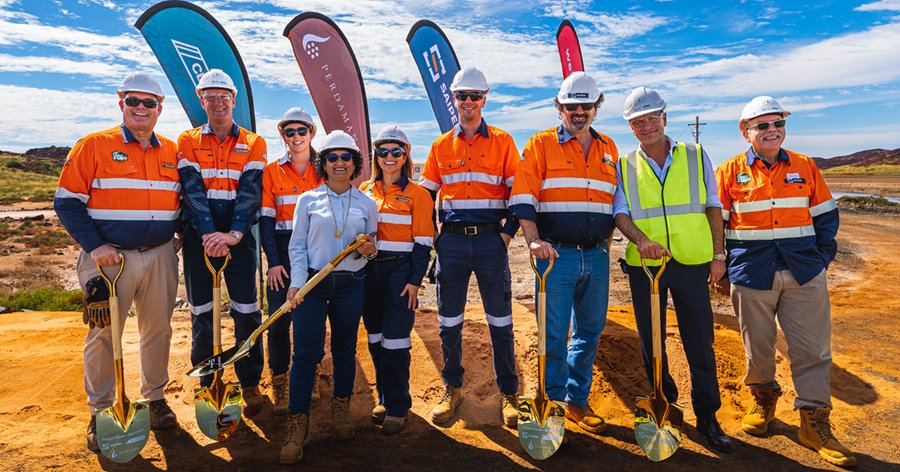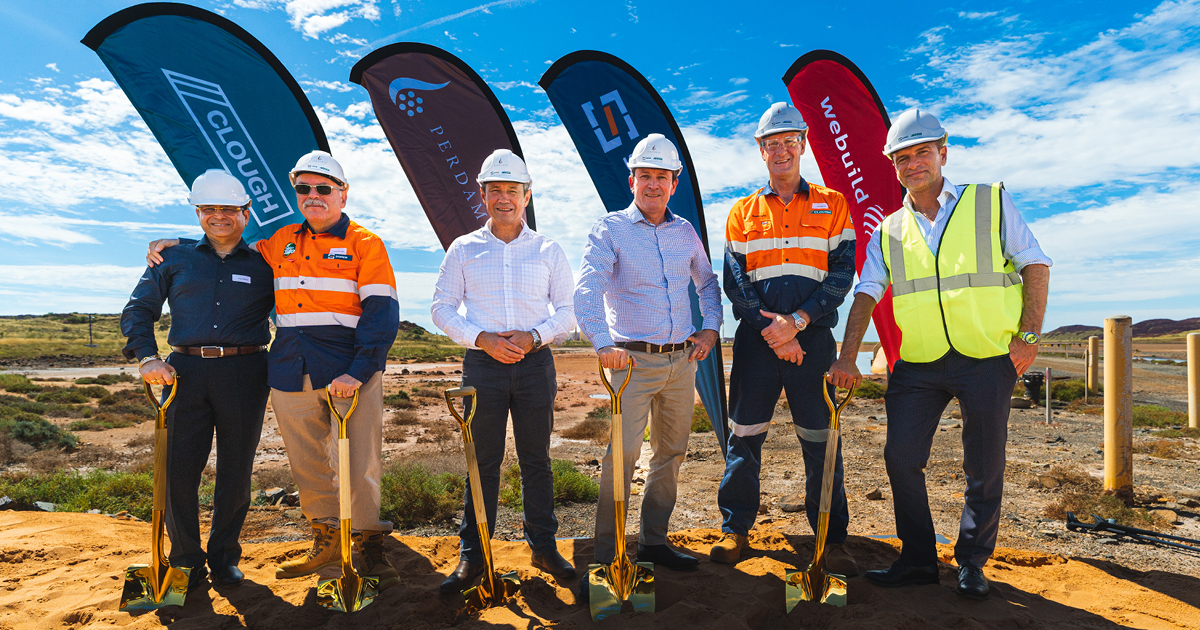Perdaman Industries’ landmark Ceres Urea Plant Project in Karratha, Western Australia, was officially launched with an inaugural ceremony, that was held in the presence of Western Australia Premier Mark McGowan, and Deputy Premier Hon Roger Cook MLA, joined by Vikas Rambal, CEO of Perdaman Industries, Peter Bennett, CEO of Clough (the Australian subsidiary of the Webuild Group), Fulvio Illuminati, APAC Area Manager and Managing Director Saipem, together with Murujuga Aboriginal Corporation and Traditional Custodians of the land.
Peter Bennett, Clough CEO and Managing Director said: “Clough and Saipem have been working closely together with Perdaman Industries for several years on the project development to ensure it meets the significant environmental and economic thresholds targeted by the stakeholders. We are incredibly proud and excited to see the commencement of this landmark project for the State, and indeed the nation. Our commitment is a safe and successful project that delivers sustainable environmental, social and economic benefits to the local community.”
Fabrizio Botta, Chief Commercial Officer at Saipem, added: “The project represents an important milestone for Saipem in a country where we want to consolidate our presence, and confirms our recognized expertise in the production of urea/ammonia. Urea is a product whose demand is growing and represents an important fertilizer in the agricultural sector. In line with our strategy and our philosophy to create value in the territories in which we operate, this project will bring positive impact not only on the industrial level but more widely to the local community”.
Saipem and Clough, in a 50/50 joint venture, last week received the official notice to proceed from Perdaman Industries, signifying the full contractual effectiveness by the achievement of the Commencement Date. Commencement Date for the EPC delivery of the US$2.8 billion Urea Plant for Perdaman Industries.
The joint venture, together with Perdaman Industries, is committed to making a positive impact, engaging with the Indigenous and local communities through career, training and business opportunities, as well as making the urea plant net carbon zero by 2050.
The project has been strongly supported by The Western Australian Government, which gave it Project of State Significance status; it is expected to generate on average 2,000 jobs during the construction phase and approximately 200 permanent jobs during the operational phase.
Read more about the project here.

Latest news


